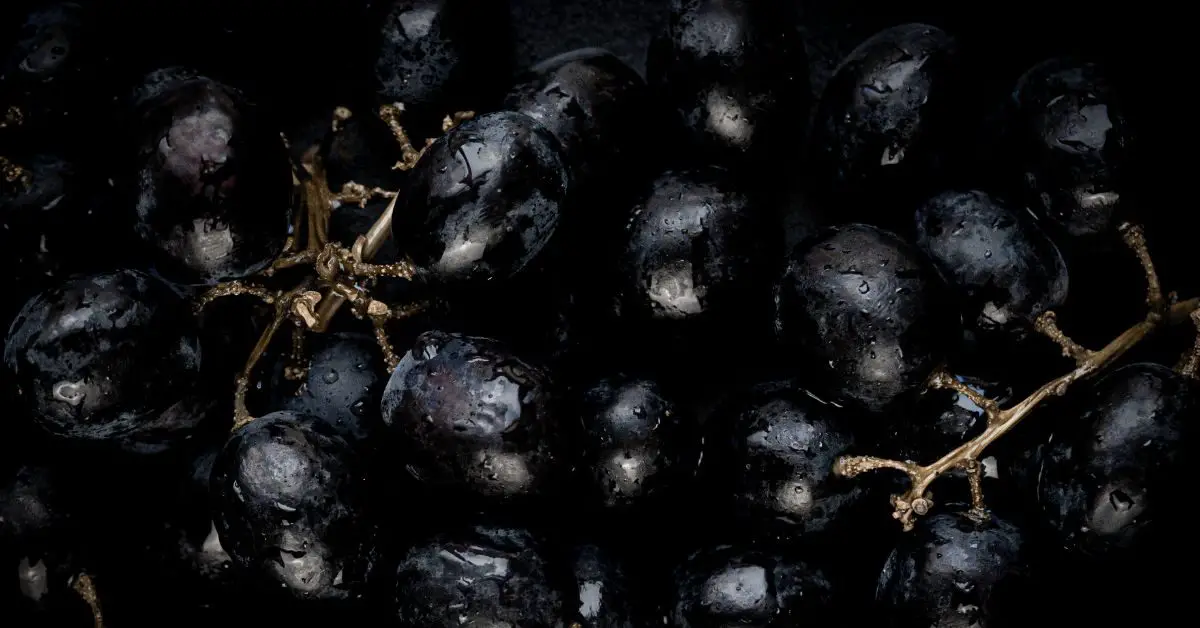
The Rich History and Cultivation of Black Grapes: A Journey into the Vineyard
Venture into the world of winemaking, and you’ll discover a rich tapestry of grape varieties, each with its unique flavor profile and history. One such grape that has captivated wine enthusiasts for centuries is the black grape. With its deep, dark colors and complex flavors, black-grapes have been treasured by winemakers and connoisseurs alike.
This article delves into the cultivation and history of black grapes, taking you on a journey through the vineyards where these luscious fruits are grown. From the ancient vineyards of Europe to the modern wine regions of the New World, we explore how black-grapes have shaped the world of wine.
Discover the secrets of the vine as we delve into the traditional cultivation methods passed down through generations. Unearth the fascinating historical significance of black-grapes, from their use in religious ceremonies to their association with luxury and prestige.
Whether you’re a wine lover seeking to expand your knowledge or simply curious about the origins of your favorite varietals, join us on this voyage into the vineyard as we uncover the rich history and cultivation of black-grapes.
Historical significance of black grapes
Black grapes have a long and storied history, dating back thousands of years. In ancient times, they were revered for their medicinal properties and used in religious ceremonies. The Egyptians, for example, considered black grapes to be a symbol of life and used them in offerings to their gods.
During the Roman Empire, black-grapes became associated with luxury and prestige. Emperors and nobles would indulge in lavish feasts where black grapes were a staple. The cultivation of black-grapes spread throughout Europe, with vineyards popping up in France, Italy, and Spain.
Cultivation process of black grapes
The cultivation of black-grapes is an intricate process that requires careful attention to detail. It starts with selecting a suitable variety of grapes, as different varieties have different growing requirements. The vines must be trained and clipped once they are planted to guarantee ideal development and fruit production.
Black grapes thrive in warm and sunny climates, but they can be grown in a variety of regions around the world. The temperature and composition of the soil have a significant impact on the grapes’ flavor and quality. Vineyards in areas such as Napa Valley in California and the Bordeaux region in France are known for producing some of the finest black-grapes in the world.
Different varieties of black grapes
There are numerous varieties of black-grapes, each with its unique characteristics. Malbec, Merlot, Syrah, and Cabernet Sauvignon are a few of the most well-liked types. Cabernet Sauvignon, for example, is known for its bold flavors and high tannin levels, while Merlot is prized for its smoothness and versatility.
Each variety of black grape has its flavor profile, ranging from fruity and jammy to earthy and spicy. Wine enthusiasts often enjoy exploring different varieties to discover their preferred taste preferences.
Health benefits of consuming black grapes
Apart from their delectable taste, black grapes have several health advantages. They are rich in antioxidants, which shield the body from damage caused by free radicals. Black-grapes are also a good source of vitamins and minerals, viz. potassium, vitamin C, and vitamin K. Regular consumption of black grapes has been associated with a comparatively lower risk of heart disease, enhanced cognitive function, and better digestive health. Additionally, black-grapes are an excellent source of hydration and can support healthy skin.Popular uses of black grapes in culinary applications
Black grapes are not only enjoyed as fresh fruit but also used in a variety of culinary applications. They can be added to salads for a burst of sweetness, incorporated into desserts such as tarts and pies, or even used to make jams and jellies. The natural sweetness of black grapes makes them a flexible component for savory and sweet recipes.
In addition to their culinary uses, black-grapes are also a popular ingredient in beverages. They can be juiced to make refreshing drinks or used to infuse flavor into cocktails and mocktails. Black grape juice is a common ingredient in many cultures and is often enjoyed as a standalone beverage.
Black grapes in winemaking
One of the most significant uses of black grapes is in winemaking. Black-grapes are used to produce red wines, known for their complex flavors and deep colors. Red wine is made by fermenting both the grape juice and the grape skins, which gives the finished product its unique color and tannin structure.
Black grapes are also used in the production of rosé wines, which have a lighter color and fruity flavors. This wine is more delicate and refreshing since the grape skins and the juice are in touch for a shorter amount of time.
Interesting facts about black grapes
– The Concord grape, a widespread variety of black grape in North America, was first cultivated in the mid-19th century by Ephraim Wales Bull.
– Black grapes contain a compound called resveratrol, which has been linked to various health benefits, including anti-aging properties.
– The oldest known winery, dating back over 6,000 years, was discovered in Armenia and contained remnants of black-grapes.
– Black grapes are used to make raisins, a popular dried fruit enjoyed around the world.
Where to buy and store black grapes
Black grapes are widely available in grocery stores, farmers’ markets, and specialty wine shops. When choosing black grapes, aim for ones that are plump, firm, and free from creases. The color of the grapes should be deep and even, indicating ripeness.
If black-grapes are kept in a plastic bag with holes in it, they can be chilled. They can be kept for up to a week, but it’s best to consume them as soon as possible to enjoy their freshness.
Conclusion: Appreciating the rich history and cultivation of black grapes
As we conclude our journey into the vineyard, it’s clear that black grapes have played a significant role in shaping the world of wine. From their historical significance to their cultivation process, black-grapes have captured the attention of wine enthusiasts throughout the ages.
Whether enjoyed as fresh fruit, used in culinary creations, or transformed into exquisite wines, black-grapes continue to captivate our palates and bring joy to our taste buds. So, the next time you raise a glass of red wine or savor a handful of juicy grapes, take a moment to appreciate the rich history and cultivation of these extraordinary fruits.
Happy exploring, and cheers to the world of black grapes!



